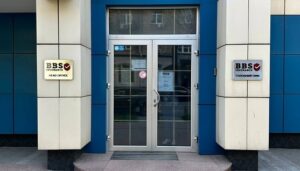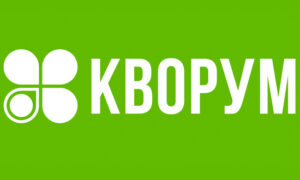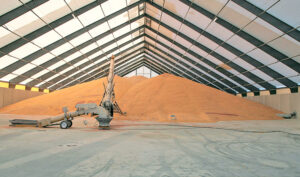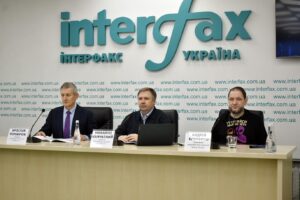
Insurance company BBS Insurance (formerly Brokbusiness, Kyiv) collected UAH 660.03 million in gross premiums in January-September 2025, which is 64.70% more than in the same period of 2024.
This was reported by RA Expert-Rating in its confirmation of the insurance company’s financial stability rating at “uaAA” on the national scale.
According to the RA, the share of insurance premiums belonging to reinsurers increased by 44.6%, while their share in the company’s gross premium structure decreased by 0.23 p.p. to 1.63%.
In the first nine months of 2025, the company made 77.75% more insurance payments and reimbursements than in the first nine months of 2024, and the level of payments increased by 2.62 p.p. to 35.67%.
During the reporting period, the equity capital of IC “BBS Insurance” increased by 21.21% to UAH 196.84 million, while its gross liabilities increased by 61.05% to UAH 388.29 million. As a result of the higher growth rate of liabilities, the level of coverage of the insurer’s liabilities by equity capital decreased in the reporting period: by 16.67 p.p. to 50.69%.
Cash and cash equivalents increased by 58.62% to UAH 382.28 million, while the ratio of cash to liabilities decreased by 1.51 p.p. to 98.45%. Thus, as of the beginning of the fourth quarter of 2025, highly liquid assets covered 98.45% of the company’s liabilities.
RA also notes that the company’s activities were profitable during the period under review. Compared to the same period in 2024, operating profit increased by 38.51% to UAH 49.05 million, and net profit increased by 27.13% to UAH 47.63 million.
BBS Insurance has been operating in the Ukrainian insurance market for over 30 years and is represented in all regions of the country. It has a license to conduct insurance activities in 18 classes.

Insurance company Quorum (Kyiv) collected net insurance premiums in the amount of UAH 47.195 million in January-September 2025, which is 36.4% more than in the same period of 2024, and gross premiums in the amount of UAH 50.216 million (+1.17%) .
This was reported by the rating agency (RA) Standard-Rating in its information on the update of the company’s credit rating/financial stability rating on the national scale at the level of “uaAA”.
The agency specified that it had updated the rating based on an analysis of the company’s performance for the reporting period.
Revenues from individuals in the insurance company increased by 10.82% to UAH 27.072 million, while there were no revenues from reinsurers. The share of individuals in gross premiums for the first nine months of 2025 was 53.91%.
Insurance premiums sent to reinsurers in January-September 2025 amounted to UAH 3.021 million, which is 79.91% less than in the same period of 2024. Thus, the reinsurers’ share in insurance premiums decreased by 24.27 percentage points to 6.02%.
The volume of insurance payments and reimbursements made by the company in the first nine months of 2025 increased by 44.26% compared to the same period in 2024, to UAH 7.894 million. Thus, the level of payments increased by 4.70 p.p. to 15.72%.
The activities of TOV “SK ”Quorum” in the period under review were profitable, and operating and net profits showed growth – by 5.89% to UAH 8.8 million and by 9.64% to UAH 8.3 million, respectively.
As of September 30, 2025, the company’s assets grew by 13.93% to UAH 79.632 million, equity increased by 13.54% to UAH 69.736 million, liabilities grew by 16.77% to UAH 9.896 million, and cash and cash equivalents increased by 12.52% to UAH 56.095 million.
Thus, as of the beginning of the fourth quarter of 2025, the company had very high levels of capitalization (704.69%) and the ratio between cash and liabilities (566.85%), the RA notes.
Insurance company Quorum was established in March 2014 and specializes in risk insurance.

Copper prices have again updated the historical maximum on the London Metal Exchange (LME) amid fears of shortages of the metal.
Quotes of futures for copper on the LME on Friday growing by 1.8% to $ 11.65 thousand per ton. Earlier during trading prices rose to $ 11.662 thousand per ton, which is a new record.
Stocks of metal in warehouses monitored by the LME fell to their lowest since July due to strong demand for copper in the U.S. on fears of imposition of duties on imports of non-ferrous metals in 2026. Rising U.S. demand could lead to copper averaging $13,000 a ton in the second quarter of next year, Citi analysts believe.
“We are confident in copper’s upside potential through 2026 due to a range of bullish factors, including increasingly positive fundamentals and macroeconomic indicators,” Citi said in a statement.
Since the beginning of the year, copper in London has risen by more than 30%.
Earlier, information and analytical center Experts Club released a video dedicated to global copper production and leading producing countries – https://youtube.com/shorts/_h8iU50z8C0?si=a-XkgGEfeUxseQNa.

The Food and Agriculture Organization of the United Nations (FAO) has completed the distribution of 615 modular grain storage facilities to small and medium-sized farms in seven frontline areas, the FAO press service reported on Facebook.
The FAO specified that this initiative was implemented with the support of the governments of Canada and Japan in close cooperation with the Ministry of Economy, Environment, and Agriculture. The FAO is convinced that the program contributes to stabilizing the work of farms, preventing post-harvest losses, and ensuring the continuity of agricultural production.
Farmers could apply to participate in the program through the State Agrarian Register (DAR). In 2025, the FAO received 747 applications from producers who cultivate between 200 and 1,000 hectares. After verification, 615 farms were selected to receive modular grain storage facilities. The distribution took place in seven regions: Chernihiv (62), Dnipropetrovsk (116), Kharkiv (124), Kherson (14), Kirovohrad (84), Mykolaiv (128), and Odesa (87).
This initiative is part of a broader Grain Storage Support Strategy that FAO and partners have been implementing since 2022 in response to a critical shortage of storage capacity. During this time, Ukrainian agricultural producers have received a wide range of storage solutions – more than 37,000 grain sleeves, 105 sets of loading and unloading equipment, and a total of 859 modular grain storage facilities. Collectively, this support has enabled farmers across Ukraine to preserve more than 8 million tons of grain and sustain agricultural production in wartime conditions.
Despite significant progress, the lack of storage infrastructure remains a key constraint to the recovery of the agricultural sector, especially in frontline and recently liberated areas, the FAO stressed. As preparations for the 2026 season get underway, the sustainable development of modern and secure grain storage facilities will remain critical to protecting livelihoods and preserving national food production.
“For farmers, the ability to safely store their harvest is not just about grain. It’s about peace of mind, about the confidence that months of hard work will not be lost. These storage facilities give Ukrainian farmers what is especially needed today in times of war: stability and the ability to look to the future with hope. We will continue to support them on this path,” assured Shakhnoza Muminova, Head of the FAO Office in Ukraine.
FAO, together with its partners, plans to provide support to approximately 100 more farmers in early 2026, but the scale of needs far exceeds available resources. Strengthened cooperation and continued active involvement of the international community will be key to enabling farmers to withstand ongoing challenges and contribute to Ukraine’s long-term recovery, the organization believes.

The 2026 state budget provides for UAH 298.8 billion in funding for the Ministry of Education and Science of Ukraine.
“The Verkhovna Rada of Ukraine has approved the state budget for 2026. The document provides for a significant expansion of investment in human capital: UAH 298.8 billion is allocated for education and science, which is UAH 85.4 billion more than in 2025,” the Ministry of Education said in a statement.
Key areas of funding include: education — UAH 278.7 billion (+UAH 79.8 billion by 2025); educational infrastructure and investment projects — UAH 17 billion, including UAH 6.2 billion for shelters in schools and kindergartens; free school meals — UAH 14.4 billion to provide meals for 3.5 million students in grades 1–11; textbooks — UAH 2.1 billion is allocated for the purchase of textbooks for grades 4 and 9; scholarships for students — UAH 6.6 billion.
It is also planned to allocate UAH 19.9 billion to science, in particular, almost UAH 3 billion for basic funding of universities and scientific institutions based on the results of state certification; UAH 998 million for research centers of advanced experience; UAH 100 million for a new competition for applied developments in partnership with business; UAH 300 million for competitive research.
“Education and science remain among the key priorities of the state in 2026. The increase in funding demonstrates that Ukraine is consistently investing in human potential, technological strength, and future sustainability — the foundation of our victory and development,” the ministry emphasized.
As reported, the 2024 state budget allocated UAH 171.2 billion to finance education, while the 2025 state budget allocates UAH 197.3 billion to finance education.

Ukraine’s economic security index in 2025 fell from 35.2 to 33.4 points out of a possible 100 due to the deterioration of social, regulatory, intangible, and institutional factors, according to the results of an annual study announced by the International Institute for Liberty at a press conference at the Interfax-Ukraine agency in Kyiv on Wednesday.
“Ukraine’s national economic security system is in a dangerous ‘orange’ zone, having deteriorated over the past year.
The main threat to economic security is the functionality, size, and discretion of the state,” the authors of the study conclude.
They specified that the ILI Index is calculated based on an analysis of 59 indicators grouped into eight categories and is applicable to any country with a transition economy.
As part of the study, the index was calculated for nine other countries: Finland, Germany, Israel, and the United States were in the “green” zone with scores ranging from 79.5 to 70.6 points; The Czech Republic, Poland, and Romania, with scores ranging from 69.8 to 54.4 points, were in the “yellow” zone, while Ukraine’s partners in the “orange” group were Turkey and Argentina, but their scores were higher, at 49.8 and 41.9 points, respectively.
The main deterioration this year occurred in the following factors: social – from 57.3 to 42 points; regulatory – from 43.5 to 35 points; intangible – from 54 to 48 points; and legal and institutional – from 53.5 to 48 points.
At the same time, the situation improved in three areas: infrastructure – from 22.1 to 33 points; monetary and financial – from 16.5 to 26 points; and macroeconomic – from 19.9 to 21 points, while tax and budgetary factors remained at the lowest level of 14 points.
“Ukraine is losing even regional competition for advanced technologies and profitable niches in global value chains. Without a change in the relationship between the state and business, the erosion of Ukraine’s comparative advantages after victory in the war will accelerate,” according to the International Institute for Freedom, whose founders include Volodymyr Poperechnyuk, co-owner of Nova Poshta, Serhiy Bashlakov, co-founder of the distribution company MTI, and Yevhen Lemberg, co-founder of the Arikol Group of Companies.
The authors of the study recommend that the government conduct a thorough review of legislation “taking into account scientific conclusions and empirical observations,” reduce the functions, size, format, and mode of the state’s presence in the economy, and abandon the practice of “growth points” and strategic sectors.
They call on the government to deregulate, privatize, implement new fiscal and monetary policies, and conduct an annual audit of the state with clear deadlines for improving economic policy parameters.
The International Liberty Institute positions itself as an independent, non-profit, non-partisan think tank whose activities are aimed at promoting, developing, and strengthening the ideas and values of freedom through expert analysis and practical solutions for the economy and politics. The president of the ILI is Yaroslav Romanchuk, and the director is Mykhailo Kamchatnyi.